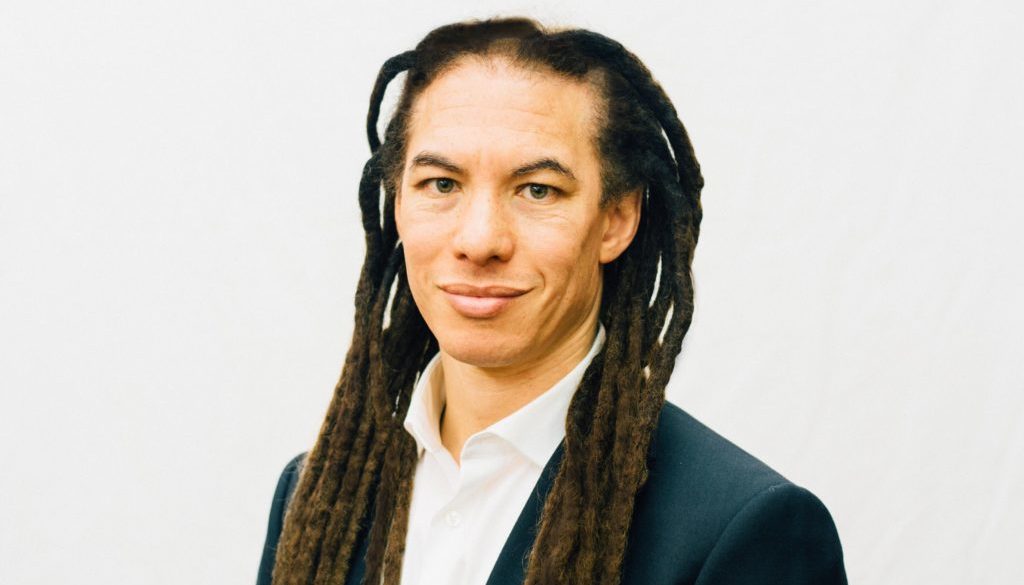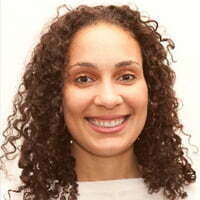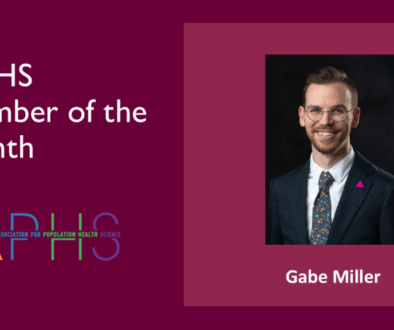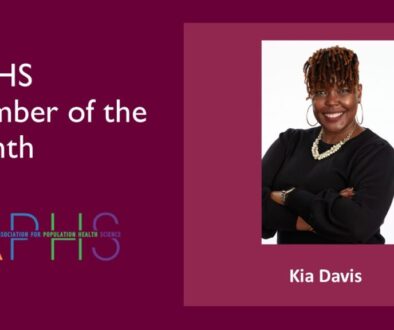Tyson H. Brown is an Associate Professor in the Department of Sociology at Duke University and he is also the Director of the Center on Health & Society. He joined IAPHS in 2017. Learn more about Tyson on his website and follow him on twitter: @tysonbrown
Tell us a little about yourself, where are you from, where did you go to graduate school, what makes you jump out of bed each morning?
I’ve moved around a lot (25 times!) so I always struggle with the question of where I’m from, but I’ve enjoyed living in quite a few places including South Florida, Nashville and Durham. Since my first year of graduate school at UNC, I’ve been driven to study issues related to the patterns, drivers and mechanisms underlying social inequalities in health.
How do you define yourself as a population health professional?
As an interdisciplinary population health scholar, my research aims to provide a better understanding of the who, when, and how questions regarding health inequality. By employing an intersectional approach to document how racial/ethnic stratification intersects with other forms of social inequality (e.g., gender and socioeconomic stratification), my work generates new insights into who is healthy and who is not in American society. By using longitudinal data, I show how health inequalities unfold across stages of the life course and across subgroups, to shed more light on when these inequalities develop, and become most (or least) prominent. By explicitly examining the role of an array of structural, socioeconomic and psychosocial factors, my work points to underlying candidate mechanisms of inequality (e.g., differential exposure to economic hardship and stressors), furthering our understanding of how these inequalities are produced and maintained, as well as how they can potentially be addressed.
What disciplines do you engage with and are there disciplines that you would like to engage with?
As a whole, my program of research addresses issues relevant not just to the disciplines of sociology (especially the subfields of medical sociology, population health, and life course sociology), demography, gerontology, and public health, but also to the broader research community interested in racial/ethnic inequality. I see opportunities for further engagement with the field of public policy given the key role that economic and social policies play in driving population health inequalities documented in my research.
Describe a current project/initiative that you are excited about.
In light of growing evidence that population health is a mirror that reflects broader societal arrangements, my research is pivoting to investigate how upstream, macro-level factors impact minority health and health inequalities. Along these lines, I’m currently working on a project with Patricia Homan (FSU) that examines the health consequences of structural racism. This project investigates how health is shaped by state-level variation in racial inequalities in political, economic, legal and social spheres. Collectively, these represent systematic exclusion from resources, opportunities and well-being. Our project utilizes a “cells to society” approach that tests whether and how structural racism gets “under the skin” to shape a wide range of health outcomes including biological markers of physiological dysregulation, chronic diseases, depression, disability, and mortality. This line of research has the potential to make important contributions to the literature by demonstrating the toxic effects of systemic inequality, as well as providing clues about how reducing structural racism would improve population health.
Name a population health professional who you admire and why?
Oh, wow—there are so many that it’s hard to choose just one! But I’ve always admired David Williams for his incredible contributions to our understanding of racial stratification and population health. In addition to his pioneering and extensive body of research, he’s also very supportive of junior scholars. I think it’s hard to overestimate his impact on the field.
How did you hear about IAPHS?/Why did you decide to become a member of IAPHS?
I decided to join IAPHS after hearing about the organization’s focus on innovative, interdisciplinary population health research. I appreciate Hedy Lee encouraging me to join because it’s become one of my favorite professional organizations.
Have you attended an IAPHS meeting? If so, what do you like most about these meeting?
I’ve been impressed with the high-quality research presented at the IAPHS meeting and I really enjoyed presenting my own work there because it provided a unique opportunity to engage with folks doing similar research.
What would you tell someone who is considering joining IAPHS?
What are you waiting on?! Join today!
What would you like to see IAPHS do in the future?
Two things: 1) double down on highlighting research on the upstream, macro-level drivers of population health, and 2) host conferences in funky cities with character (e.g., New Orleans, Nashville and Philly)
Is there anything we have missed that you would like to add?
Mentoring graduate students has been one of the most rewarding aspects of my career. I employ a collaborative, apprenticeship model to training students. If you’re an early career scholar (prospective graduate student or postdoc) interested in gaining additional training related to the structural and psychosocial determinants of population health, please get in touch! I can be reached at tyson.brown@duke.edu.
Favorite population health relevant book:
Alondra Nelson — The Social Life of DNA
Jonathan Metzl — Dying of Whiteness
Michael Marmot — The Status Syndrome
Favorite population health relevant academic/news/etc. article(s):
Peggy Thoits — Stress and Health: Major Findings and Policy Implications
Bridget Goosby et al. — Stress-Related Biosocial Mechanisms of Discrimination and African American Health Inequities
Gilbert Gee et al. — Racism and the Life Course: Taking Time Seriously
Favorite movie, band, non-fiction, book, etc.:
Favorite musical artists: Sam Cooke, Stevie Wonder, David Bowie, Lauren Hill






All comments will be reviewed and posted if substantive and of general interest to IAPHS readers.